Sustainable material – CEAT Ltd, the tire manufacturer, is strategically positioning itself to capitalize on the surge in passenger vehicle (PV) sales in India, anticipating a subsequent rise in demand for replacement tires 30-01-2024
Sustainable material
Experienced in military operations and strategic analysis, I bring a comprehensive understanding of recent incidents involving pro-Iranian factions targeting US military bases
As reported by reputable sources such as the Wall Street Journal and Politico, I possess insights into the intricacies of the drone operation that resulted in the unfortunate loss of three soldiers at the Tower 22 installation.
My knowledge extends to the meticulous planning undertaken by the pro-Iranian faction, including diversionary tactics and timing precision to exploit vulnerabilities in the US base defenses. Sustainable material
The incident underscores the importance of continuous assessment and adaptation of security measures, as the militiamen demonstrated a deep understanding of the target, assessing countermeasures and penetration strategies.
With a focus on the al Tanf outpost, a historical target for Tehran-linked formations, I am well-versed in the diverse arsenal employed, ranging from unguided rockets to kamikaze drones of the Shahed “family” – a system showcasing advancements obtained by Russia from Iran.
My understanding extends beyond the incident itself, encompassing the broader context of the conflicts in Ukraine and the Middle East, where equipment is constantly refined through shared knowledge among militias. Sustainable material
My expertise includes the evolution of drone technology, with insights into the continuous improvements influenced by conflicts in Ukraine and the experiences of groups like the Houthis in Yemen.
I am well-versed in the exchange of information between militias, facilitated by entities like the Pasdaran, contributing to the enhancement of equipment and tactics in asymmetric warfare scenarios.

Crude Oil Prices Trend

Crude Oil Prices Trend by Polyestertime
Rystad tips Australian projects to help propel global green hydrogen growth
Rystad Energy has countered the International Energy Agency’s (IEA) recent “reality check” for the green hydrogen sector, predicting that the momentum behind renewable-based hydrogen will gather pace in 2024 as global renewable energy capacity continues to expand rapidly.
Activity in the clean hydrogen sector is “surging” globally, fueled by maturing policies and early commercial-scale projects, including here in Australia, according to international energy consultancy Rystad Energy. Sustainable material
Artem Abramov, head of clean tech research at Rystad Energy, said he expects hydrogen projects will take off in 2024 driven by large-scale projects in Australia as well as the Middle East and Africa, along with maturing policies in Europe and the United States.
“2024 promises more than just momentum, it’s a year of clarity,” Abramov said, noting that several key feasibility studies are to be completed, which he expects will reveal promising new use cases for hydrogen consumption. Sustainable material
Abramov also said a series of global auctions and grants will be rolled out, providing essential insights into key aspects of the emerging clean hydrogen sector.
“These events will shed light on pricing dynamics, technological advancements and the eventual victors and contenders in this transformative landscape,” Abramov said.
Rystad Energy’s forecast comes just weeks after the IEA delivered what it described as a reality check on green hydrogen development, noting that despite announcements on plenty of new projects, progress in realizing them has been slow.
In the latest edition of its annual Renewables market report, the IEA said that more than 360 GW of renewable energy-powered electrolyzer projects with start dates before 2030 had been announced but only 3% of these had reached financial close or started construction. Sustainable material
Rystad expects that there will be fewer clean hydrogen project announcements this year compared to previous years with most of the effort in 2024 to be focused on realising projects.

Plastic Omnium, the renowned French automotive manufacturer, is set to inaugurate its mega-plant in China in 2026, signaling a significant stride in the global hydrogen mobility market
The ambitious venture, undertaken through its joint collaboration with Rein Hytec, known as PO-Rein, aims to produce a substantial 60,000 hydrogen tanks annually, exclusively targeting the burgeoning Chinese commercial vehicle market.
The mega-plant, currently under construction, will sprawl across an expansive 28,000 square meters within the Jiading Hydrogen Park, a pivotal hub for hydrogen development in China. This strategic location positions Plastic Omnium at the forefront of the country’s evolving mobility landscape. Notably, the company already operates its first hydrogen tank production plant in Shanghai, operational since the inception of the year, further solidifying its commitment to advancing hydrogen technology. Sustainable material
Laurent Favre, the CEO of Plastic Omnium, expresses the new facility as a tangible manifestation of the joint venture’s aspirations in the Chinese hydrogen mobility sector. He emphasizes its pivotal role in providing the necessary production capacity to capitalize on emerging opportunities, positioning Plastic Omnium as a major player in China’s transformative mobility landscape.
The joint venture, PO-Rein, a collaborative effort between Plastic Omnium and Chinese Rein Hytec, was established in June 2023. Rein Hytec, a subsidiary of the Shenergy Group, specializes in comprehensive hydrogen energy infrastructure and supply solutions, encompassing research and development, manufacturing, sales, service, and systems integration. Sustainable material
With an eye on the future, Plastic Omnium has set an ambitious revenue target of 3 billion euros in hydrogen by 2030, underlining its commitment to sustainability and innovation in the automotive industry. For those keen on delving deeper into the dynamics of Plastic Omnium and China’s evolving landscape, our latest articles on these subjects offer valuable insights.
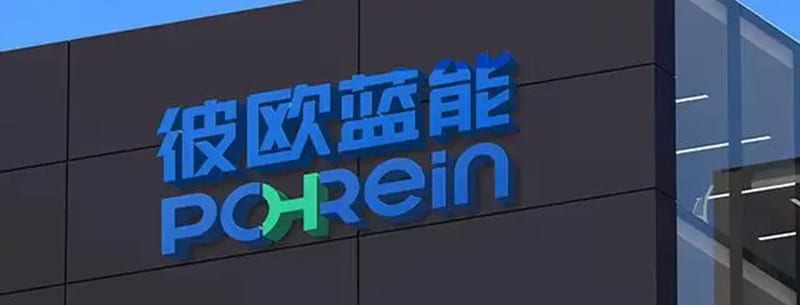
Krones, a global leader in beverage filling and packaging solutions, is poised to enhance its market position through the imminent acquisition of Netstal Maschinen AG
The agreement, which is nearing finalization, will see Krones acquiring 100% of Netstal from KraussMaffei, a move signaling Krones’ strategic expansion into injection molding. Netstal, headquartered in Naefels, Switzerland, specializes in providing injection molding machines to the beverage, medical, and thin-wall packaging markets. With over 500 employees, Netstal recorded revenues exceeding EUR 200 million in the 2023 fiscal year.
Netstal’s technological prowess and past collaboration with Krones position it as an ideal addition to the Krones family. Sustainable material
The acquisition aligns with Krones’ diversified growth strategy, offering significant benefits in expanding product portfolios. Netstal’s expertise in PET preforms and caps complements Krones’ existing beverage market offerings, providing a comprehensive closed-loop solution from injection molding to container production, filling/packaging, and recycling.
Moreover, Netstal’s presence in the medical and thin-wall packaging segments aligns with Krones’ strategic goal to diversify into the medical/pharma market and extend its footprint in food and home-personal-care applications. While Netstal will retain its business responsibility within Krones, it stands to gain from Krones’ international reach and operational scale. Sustainable material
Financed primarily through existing liquid funds, with the possibility of partial debt financing, the acquisition is scheduled for finalization in early February 2024, pending approval under relevant antitrust legislation. Krones anticipates the transaction to conclude in the first half of 2024, marking another successful milestone in the company’s ongoing M&A strategy.

CEAT Ltd, the tire manufacturer, is strategically positioning itself to capitalize on the surge in passenger vehicle (PV) sales in India, anticipating a subsequent rise in demand for replacement tires
With 2023 witnessing a record high of 41.08 lakh PV units sold, representing an 8.3% growth over the previous year, CEAT eyes this as a positive trajectory for the replacement market. Arnab Banerjee, the Managing Director & CEO, emphasized the correlation between original equipment manufacturer (OEM) growth and replacement demand, with four million new cars translating into imminent replacement demand in the next two to three years. Sustainable material
Anticipating the burgeoning replacement market, CEAT is set to enter the US PV and truck and bus radial tire market in the first quarter of the upcoming fiscal year, seeking to establish its international business as a growth engine. Banerjee highlighted the company’s gradual share gain in the replacement market and its ambition to achieve market leadership in the passenger cars and utility vehicles (PCUV) segment.
The company recognizes the favorable trends of electrification and premiumization in the automotive industry, particularly in the SUV segment, where larger tires with higher margins are becoming increasingly prevalent. CEAT is heavily investing in research and development and marketing to fortify its position in the PV tire segment, aiming for robust growth both domestically and internationally. Sustainable material
Addressing international expansion plans, Banerjee disclosed the imminent launch in the US encompassing PCUV and truck and bus radial tires. Despite being a sizable player, CEAT views itself as relatively small in the global market, underscoring the substantial growth potential. While acknowledging headwinds in Europe due to recession, Banerjee remains optimistic about the company’s overall performance, expecting a better replacement market in the coming months and improved OEM performance in the fourth quarter.
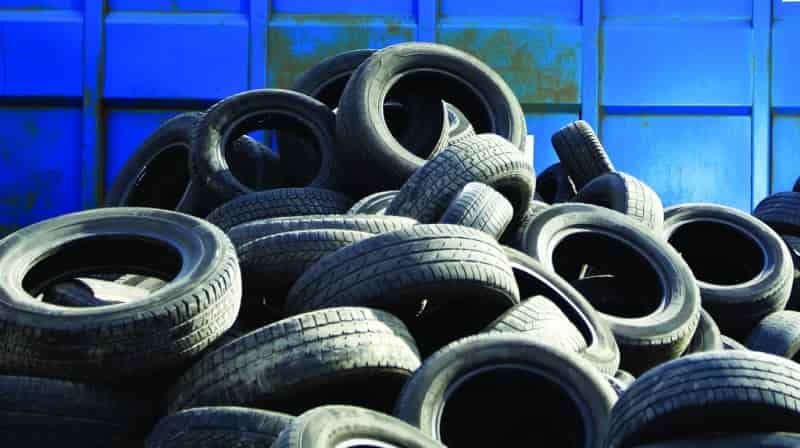
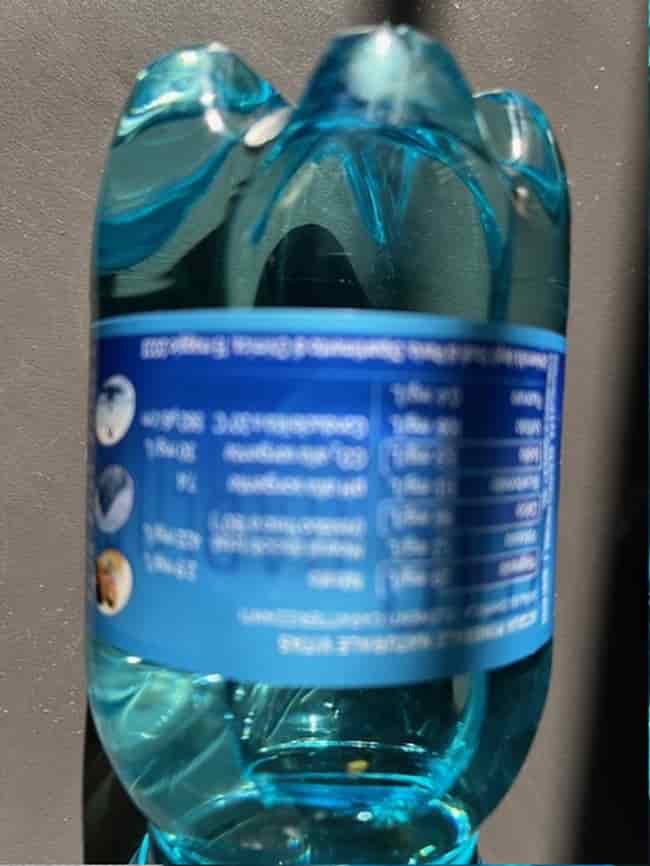
Natalia Scherbakoff, Trinseo’s Vice President of Technology & Innovation, is a driving force in delivering sustainable material solutions
In a recent Forbes Technology Council article, she explored the impact of chemistry on sustainability and shared insights on depolymerization, a form of chemical recycling. Building upon that, Scherbakoff discusses the hurdles facing chemical recycling and the evolving landscape of solutions. Sustainable material
One major challenge is scalability; the development of large-scale recycling facilities requires significant investments in infrastructure and technology. Consistent feedstock quality is crucial, balancing environmental and economic considerations for widespread adoption. Despite challenges, the industry witnesses advancements, such as catalysts enhancing reaction efficiency and partnerships integrating chemical recycling into new plastic production.
Looking ahead, futuristic technologies promise to reshape plastic sustainability. Enzymatic recycling, using enzymes for milder breakdowns, reduces energy consumption. Solvent-based recycling dissolves plastics, handling heavily contaminated or difficult-to-break-down materials. Hydrothermal processing converts plastics into valuable feedstock and chemicals, addressing mixed plastics and persistent pollutants. Sustainable material
Ongoing catalyst research tailors solutions for specific polymers, streamlining recycling. Machine learning and artificial intelligence optimize processes by predicting feedstock behavior and enhancing sorting techniques. Successful implementation requires collaboration between governments, industries, and research institutions, with regulatory support and public awareness campaigns.
Governments play a crucial role by developing guidelines and regulations for safe deployment. Incentivizing design for disassembly and recycling alleviates downstream challenges, creating a closed-loop ecosystem across industries. Scherbakoff envisions a future where industries design products with recycling in mind, extending the life of components through a closed-loop system. Sustainable material
Despite obstacles, chemical recycling offers hope for a sustainable future. Addressing complexities and embracing collaboration is key. Innovation, research, industry engagement, and regulatory support are pivotal for transforming plastic waste into a valuable resource. Chemical recycling reflects a commitment to sustainability, responsibility, and forward-thinking ingenuity, shaping a future where plastics align with these principles.
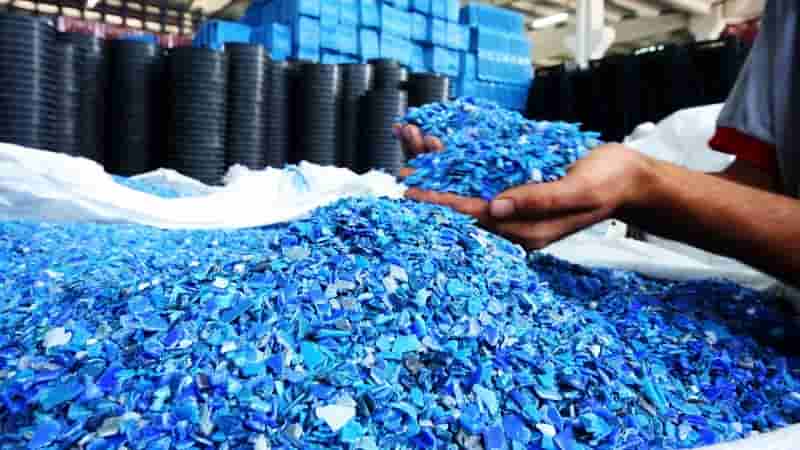
Riyadh’s ambitious pursuit of an electric vehicle (EV) industry, as part of Saudi Crown Prince Mohammed bin Salman’s economic diversification plan, faces formidable challenges
Despite investing over $10 billion in U.S.-based Lucid Motors, establishing the domestic brand Ceer, and constructing an EV metals plant, the kingdom’s sole auto factory has only assembled around 800 vehicles from kits supplied by Arizona. Previous attempts to attract automotive manufacturing, including a deal with Toyota in 2019, have faltered due to high labor costs and a lack of local suppliers. Sustainable material
The Public Investment Fund (PIF), with a goal to produce 500,000 EVs annually by 2030, is confronted with hurdles such as the absence of a significant local auto-component industry. Ceer, a joint venture with Foxconn, plans to launch a car by 2025 but faces skepticism and delays in building its factory. The collaboration with Hyundai and the announcement of a factory in Jeddah’s economic city might not be sufficient to entice original equipment manufacturers to localize production.
Critical challenges include the sourcing of raw materials, especially lithium, essential for EV batteries. Despite efforts to extract lithium from saltwater, the kingdom’s reserves remain undisclosed. Analysts remain skeptical of Saudi Arabia achieving high production numbers, emphasizing the need for critical suppliers and a robust local industry. Sustainable material
While the kingdom aims to showcase sustainability credentials, hurdles persist, and the success of its EV dream hinges on overcoming these multifaceted challenges.
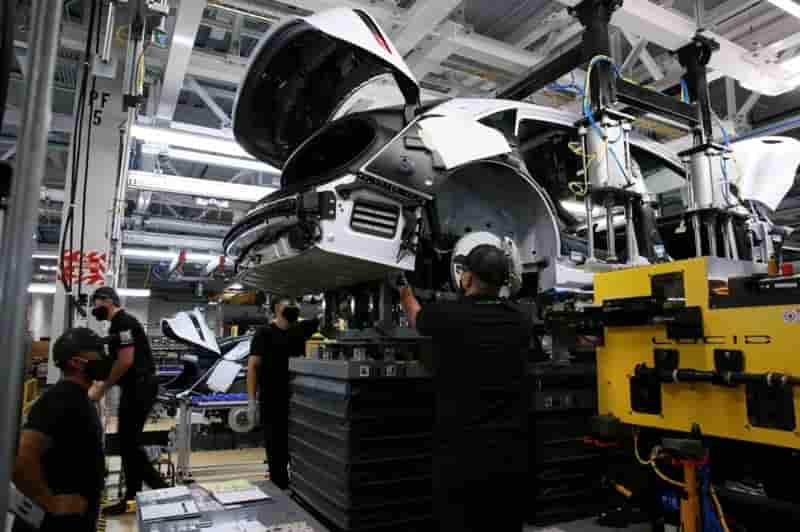
The Mitsubishi Chemical Group (MCG Group) is set to pioneer the world’s first commercialization of polycarbonate (PC) resin chemical recycling, with verification testing commencing in the Kanto region in January 2024
Collaborating with Tokio Marine & Nichido Fire Insurance Co., Ltd. (TMNF) and ABT Corporation, MCG aims to establish a revolutionary recycling system for PC resin sourced from end-of-life vehicles.
The group’s dedicated test bench facility for PC resin chemical recycling, located at Mitsubishi Chemical Corporation’s Kyushu Plant, began operations in September 2023. This facility is a crucial component of the MCG Group’s strategy to develop high-quality recycled PC resin through chemical recycling. Sustainable material
The ongoing demonstration project, part of the Ministry of the Environment’s ‘FY2022 Demonstration Project for a Plastic Resource Circulation System toward a Decarbonized Society,’ involves recycling used PC resin collected from the market. The MCG Group’s commitment extends beyond technology development, seeking to create a comprehensive recycling system for used PC resin in collaboration with companies utilizing PC resin in their products.
Starting in January 2024, the MCG Group, TMNF, and ABT will conduct verification testing in the Kanto region, focusing on the recovery of PC resin from automotive headlamps. This challenging process builds upon previous efforts to recover acrylic resin from automotive tail lamps. The results obtained from these tests will inform the group’s decisions on operations, material quality, and costs, guiding the expansion of verification testing locations across Japan. Sustainable material
Through these initiatives, the MCG Group strives to achieve the social implementation of an effective PC resin recycling system, marking a significant milestone in sustainable materials management.
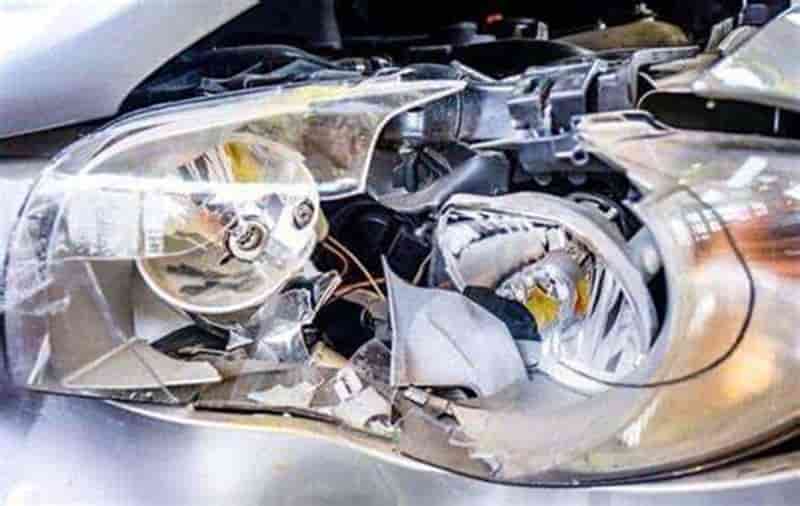
Sustainable material
